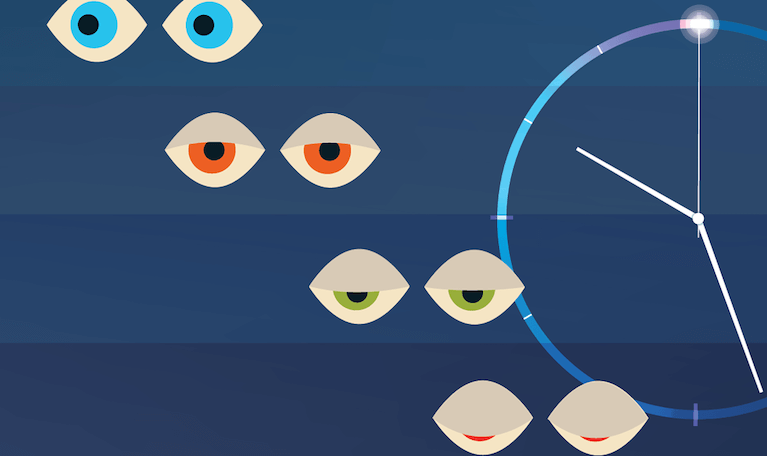Iowa State Sleep-tracker study finds fatigued officers struggle with investigations
Posted May 10, 2023

Like many first responders, law-enforcement investigators and detectives often struggle with sleep. Late-night shifts, stress, and the 24-hour nature of crime can throw off biological clocks and cut sleep cycles short. Along with the negative health implications, new research indicates officers who are fatigued have a harder time collecting information that could bring justice to victims.
Zlatan Križan, a sleep scientist and psychology professor at Iowa State University, led the study. He says previous research, including his own, shows that people who have lost sleep have trouble controlling their emotions and keeping themselves on task.
“Unfortunately, there hasn’t been a lot of research about the role of sleep for people who conduct high-stakes investigations. We wanted to see what real detectives and law enforcement officers experience during their investigative interviews because we know that they’re often getting less sleep than the recommended amount and frequently experience sleep disorders,” says Križan.
With ISU psychology professor Christian Meissner, graduate student Anthony Miller and retired homicide detective Matthew Jones, Križan conducted a study with 50 law-enforcement officers from Arizona, Iowa, Kansas and Nevada. Participants wore a sleep-activity tracker for two weeks and completed a daily survey, which included questions related to sleep quality, stress, hours worked and self-care (e.g., hobbies, exercise.)
Officers also reported their interactions with victims, witnesses, or suspects during actual investigative interviews in the field, which Križan emphasizes are psychologically complex. In order to get useful information that could solve a case, he says investigators need to establish a rapport or relationship with the other person. That can be hard to do during a short interaction, especially if the interviewee is skeptical of law enforcement, trying to cover up a crime, or simply annoyed with having their day interrupted. Investigators may need to change tactics or strategies.
“Conducting an effective interview requires considerable cognitive effort and the ability to manage one’s emotions. Investigators often informally report considerable stress and sleep disruption as a part of the job. For the first time, the current study documents how an investigator’s sleep and fatigue can significantly influence the success of an interview or interrogation,” says Meissner.
Key Findings
After analyzing data from the sleep-activity trackers and using biomathematical modeling to estimate daily fatigue, the researchers found officers often:
- Slept less than seven hours per night,
- Took longer than average to fall asleep,
- Woke up multiple times during the night, and
- Experienced several days with suboptimal levels of alertness, some of which were on par with mild levels of alcohol intoxication.
They also found strong evidence linking sleep with several core aspects of investigator interviews. One of the most striking findings was that officers reported greater resistance from interviewees and more difficulty establishing rapport on days when they were more fatigued. Križan says one possible explanation is that tired investigators are more apt to lose their patience and perceive interviewees as uncooperative.
Another important finding from the study backed this up. Sleep-deprived participants reported difficulties focusing on their work and managing their emotions. These results were most likely among officers with late-night and early-morning shifts.
“The study results indicated that less fatigued officers and investigators may be better equipped for reaching investigative solutions and bringing appropriate culprits to justice,” says Križan. “Fatigue management and wanting well-rested law enforcement is really important for ensuring both their effectiveness and ensuring valid outcomes of investigations.”
The researchers point out that certain professionals (e.g., airline pilots) have rest requirements. But Križan adds that implementing sweeping regulations like this would be difficult to do with police departments, which are locally managed. They don’t have a national regulator like the Federal Aviation Administrator or American Medical Association.
He adds that these issues are not unique to law enforcement. Other first responders, including firefighters and emergency medical technicians, often experience disruptions to sleep, long shifts and being overworked, and are similarly managed at the city or county level. Križan says a solution could be adding more staff to relieve first responders, but that comes with additional hurdles, including approval for larger budgets and finding qualified candidates.
While easy policy solutions remain elusive, Križan and his team are continuing to research how poor sleep affects the ability of police officers to assess the credibility of interview subjects. They’re also investigating how individual characteristics may make someone more or less sensitive to the adverse effects of fatigue.
